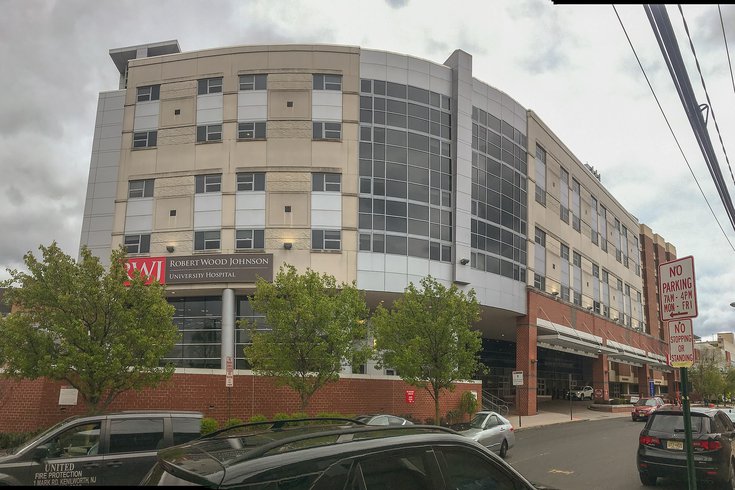
July 21, 2021
 Andrew nyr/Creative Commons
Andrew nyr/Creative Commons
The Robert Wood Johnson University Hospital in New Brunswick is part of the RWJBarnabas health network in New Jersey. Six supervisory employees in the network were fired for failing to comply with the company's COVID-19 vaccine mandate, part of a growing trend among hospitals in the United States.
New Jersey hospital network RWJBarnabas Health has fired six supervisory-level employees for refusing to get COVID-19 vaccinations.
The hospital system, a collection of independent health care providers across 13 locations, had set a June 30 date for employees to provide proof of vaccination. In May, RWJBarnabas became the first hospital network in New Jersey to mandate the vaccine.
The supervisory level of employment in the hospital network includes doctors, nurses and hospital administrators who have a title.
When RWJBarnabas set the mandate in May, it initially applied to all supervisory positions in the network, with plans to later require vaccination for all employees.
"At RWJBarnabas Health we have an ethical and professional responsibility to protect our patients and ensure a safe, COVID-19 free environment. We shall be mandating vaccination for all staff and physicians and will be announcing our plans in the coming days," the health network said.
Nearly 3,000 staff members at the supervisory level complied with the vaccine mandate, accounting for more than 99% of those roles.
Hospitals across the United States are increasingly requiring that their employees get vaccinated in order to protect vulnerable patients, a trend that may be accelerated by the rise of the Delta variant and increasing COVID-19 cases across the United States.
In Philadelphia, the University of Pennsylvania Health System mandated that all employees and clinical staff be vaccinated by no later than Sept. 1. New hires must provide proof that they have received at least one of two vaccine doses before they begin work. The University of Pennsylvania, like many others across the country, also mandated that all students, faculty and staff receive vaccinations.
Some hospitals have put off the decision to mandate vaccines until the U.S. Food & Drug Administration grants full approval for COVID-19 vaccines, which currently only have emergency use authorization. Those decisions may not come until early next year, but they could signal a broader push for vaccine mandates across the country.
At least 20 state legislatures have either passed or are considering bills that would ban vaccine mandates or other restrictions on unvaccinated people by businesses and governments.
Just under 50% of the U.S. population is fully vaccinated, making the months ahead a critical juncture in the long-term pandemic response.
"Shame on us if we sit here in July and don't do something to increase the vaccination rates and then we can't open schools or have a situation where, God forbid, the economy takes another hit because businesses have to shut back down," said Kathleen Sebelius, former health and human services secretary under President Barack Obama, in an interview with NBC News.
The Biden administration has not yet pushed for any federal legislation that requires vaccination in certain settings, but that may change once the vaccines get FDA approval.
"We know that some employers, hospitals, health systems, colleges, universities and local leaders have chosen to take this step, and we expect others to do so as well," White House press secretary Jen Psaki said this week. "But our role we're playing from here is continuing to go community by community, person to person, making sure we are meeting people where they are to get the vaccine out."